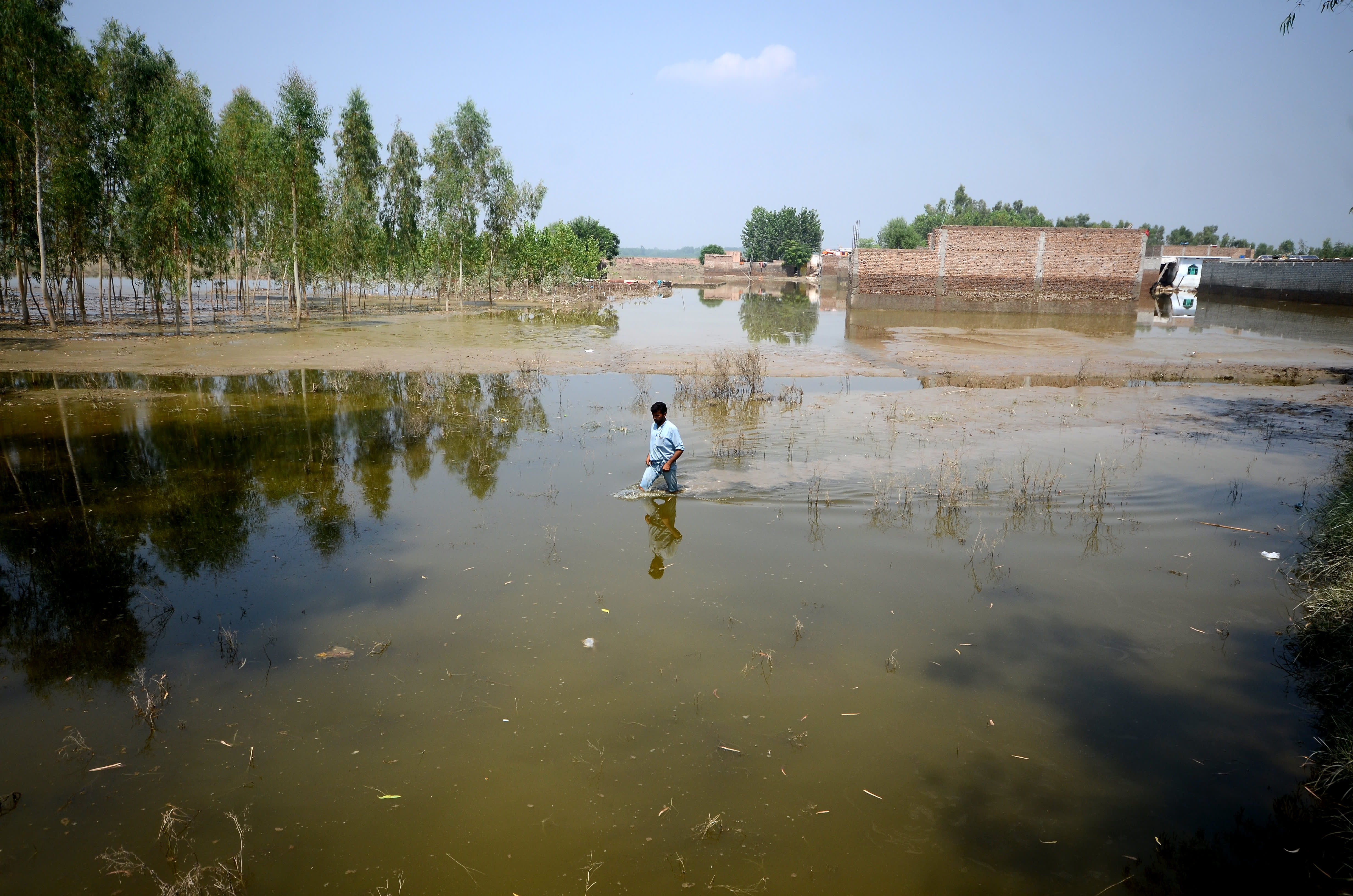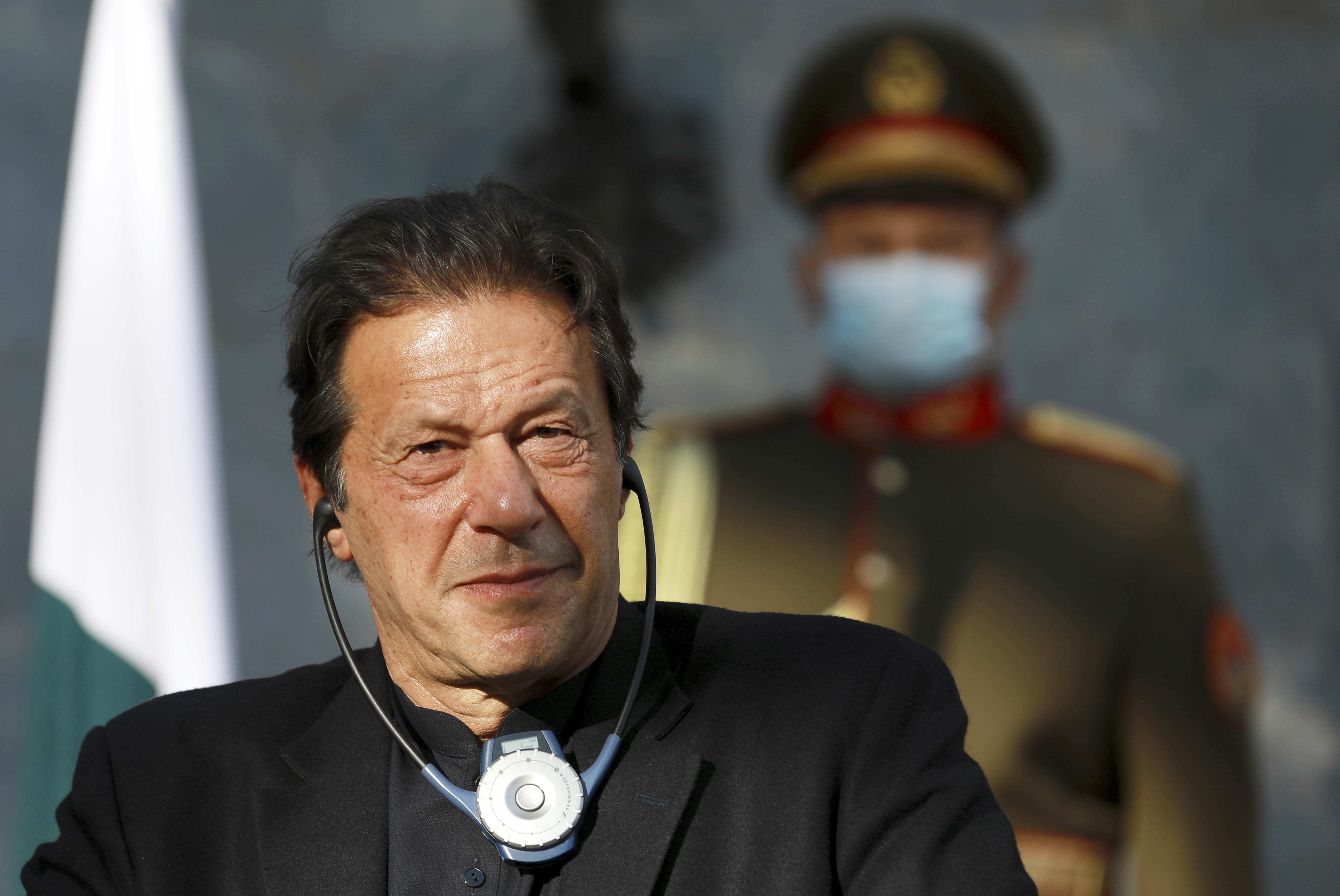
The U.N. refugee agency rushed in more desperately needed aid Monday to flood-stricken Pakistan as the nation's prime minister traveled to the south where rising waters of Lake Manchar pose a new threat.
Two UNHCR planes touched down in the southern port city of Karachi and two more were expected later in the day. A third plane, with aid from Turkmenistan also landed in Karachi. While the floods in recent weeks have touched much of Pakistan, the southern Sindh province, where Karachi is the capital, has been the most affected.
More than 1,300 people have been killed and millions have lost their homes in flooding caused by unusually heavy monsoon rains in Pakistan this year that many experts have blamed on climate change. In response to the unfolding disaster, U.N. Secretary-General Antonio Guterres last week called on the world to stop “sleepwalking” through the crisis. He plans to visit flood-hit areas on Sept. 9.
On Sunday, engineers cut into an embankment in the sides of Lake Manchar in an effort to release rising floodwater to save the city of Sehwan and several nearby villages from possible destruction by flooding waters, which have damaged 1.6 million houses since mid-June.
Prime Minister Shahbaz Sharif was met by Foreign Minister Bilawal Bhutto in the city of Sukkur on the swelling Indus River, from where they toured the flood-hit areas by helicopter. Murad Ali Shah, the province's chief minister, briefed Sharif about the damages caused by floods in Sindh.
Pakistan Coverage:
Floods have affected more than 3.3 million in this Islamic nation of 220 million and the devastation has caused $10 billion in damage, according to government estimates. The provinces of Punjab, Sindh, Baluchistan and Khyber Pakhtunkhwa have been the most affected and the majority of people killed were women and children.
Last week, the United States announced $30 million in aid for Pakistani flood victims. On Monday, two members of Congress, Sheila Jackson Lee and Tom Suzy, met with Pakistani officials and visited some of the stricken areas, the government said.
Pakistani President Arif Alvi at a ceremony in Islamabad awarded the country's second highest award to Jackson Lee, who along with Suzy and U.S. embassy officials met with Prime Minister Sharif, according to a government statement. It said Sharif told the members of Congress that despite being one of the lowest emitters of carbon emissions, Pakistan was facing the brunt of climate change.
The statement said Lee conveyed her “deepest sympathies" for flood victims and said Congress and the Biden administration would support Pakistan “in the wake of this colossal challenge.”
Feeling out of the loop? We'll catch you up on the Chicago news you need to know. Sign up for the weekly Chicago Catch-Up newsletter.
Flood waters were receding in Punjab, Khyber Pakhtunkhwa and Baluchistan provinces, but the situation was alarming across Sindh province. Hundreds were leaving the district of Jaffarabad after their homes were flooded.
“Our homes are right now inundated," said Khadim Khoso, 45, recounting how he waded through chest-high water. He said he and his family left their home once the floodwaters brought in the snakes.
“No government help has reached here," he said. However, authorities say they are doing their best to deliver aid to flood victims.
Pakistan's former Prime Minister Imran Khan also visited some of the flood-hit areas in Sindh on Monday, including the city of Sukkur. Last week, he drew government criticism for addressing a series of antigovernment rallies at a time of a flooding emergency for Pakistan.
Afghan refugees living in Pakistan have also been affected by the floods. Pakistan has hosted millions of Afghans fleeing the violence in their country over the past four decades and currently has about 1.3 million registered Afghan refugees.
More than 420,000 Afghan refugees are estimated to be in the worst-affected areas in Pakistan, living side by side with their host communities.
Also Sunday, UNICEF delivered relief supplies, including medicines and water-purifying tablets, as part of the U.N. flash appeal for $160 million to support Pakistan's flood response. UNICEF is also appealing for $37 million for children and families.
“The floods have left children and families out in the open with no access to the basic necessities of life,” said Abdullah Fadil, UNICEF's representative in Pakistan.
Planes carrying aid from other countries are also expected later Monday in response to an appeal from Sharif, who has appealed to the international community to help Pakistan.
With the two UNHCR planes, 38 planes have brought in aid from countries including China, Qatar, the United Arab Emirates, and Uzbekistan.
Associated Press writer Muhammad Farooq in Jaffarabad, Pakistan, contributed to this report.



